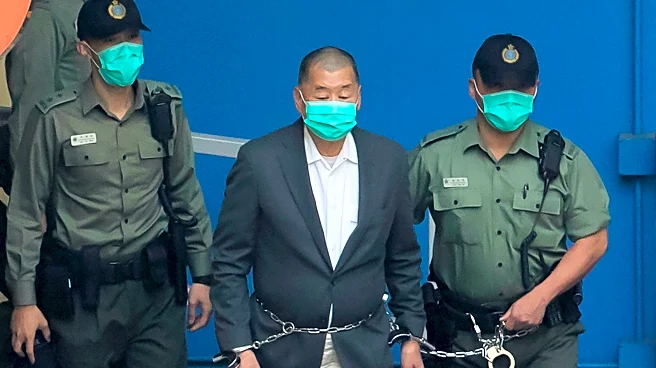Rapid Read • 8 min read
The Trump Administration has reinitiated negotiations with Iran to address the country's nuclear program, aiming to exchange sanctions relief for nuclear restrictions. These talks, which began in April 2025, have seen several rounds in Italy and Oman, with the latest session occurring in Rome on May 23. The discussions are focused on curbing Iran's nuclear capabilities, with the U.S. demanding the dismantling of Iran's nuclear infrastructure. However, Iran insists on maintaining low-level enrichment for civilian purposes, citing its rights under the Non-Proliferation Treaty. The negotiations are further complicated by potential expansions of the agreement to include restrictions on Iran's ballistic missile program and its support for regional proxy groups. Iranian Supreme Leader Ayatollah Ali Khamenei has expressed skepticism about the negotiations reaching a successful conclusion.
AD
The outcome of these negotiations holds significant implications for international security and U.S. foreign policy. A successful agreement could prevent Iran from developing nuclear weapons, thereby reducing regional tensions and potentially stabilizing the Middle East. Conversely, failure to reach a deal could lead to increased sanctions or military action, as President Trump has indicated a preference for diplomacy but has not ruled out military options. The negotiations also impact global diplomatic relations, particularly with countries involved in the original Joint Comprehensive Plan of Action (JCPOA), such as China, Russia, and European nations. The potential for military conflict could affect global oil markets and economic stability, given Iran's strategic position in the region.
If the negotiations succeed, the U.S. may lift certain sanctions, and the UN Security Council could maintain sanctions relief under resolution 2231. However, if talks fail, the U.S. and its allies might invoke the 'snapback' mechanism to reimpose UN sanctions. The Security Council is expected to discuss these developments in an upcoming briefing, with the JCPOA and resolution 2231 set to expire in October. The Council may consider extending the resolution to allow for further negotiations. Meanwhile, reports suggest Israel is preparing for potential military action, which could escalate tensions if diplomatic efforts do not yield results.
The negotiations highlight broader geopolitical dynamics, including the U.S.'s strategic interests in the Middle East and its relations with allies and adversaries. The potential for military conflict underscores the delicate balance of power in the region and the role of international diplomacy in conflict resolution. Additionally, the situation raises questions about nuclear non-proliferation and the effectiveness of international agreements in curbing nuclear ambitions.
AD
More Stories You Might Enjoy













